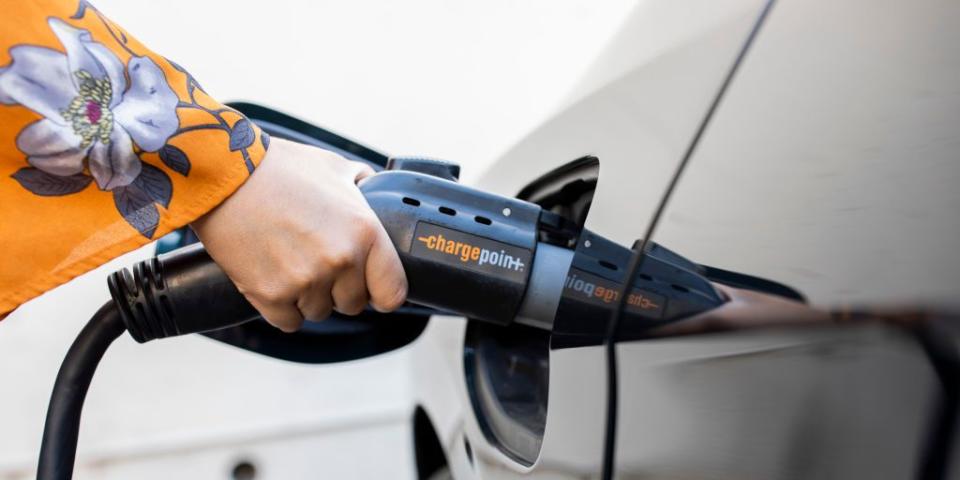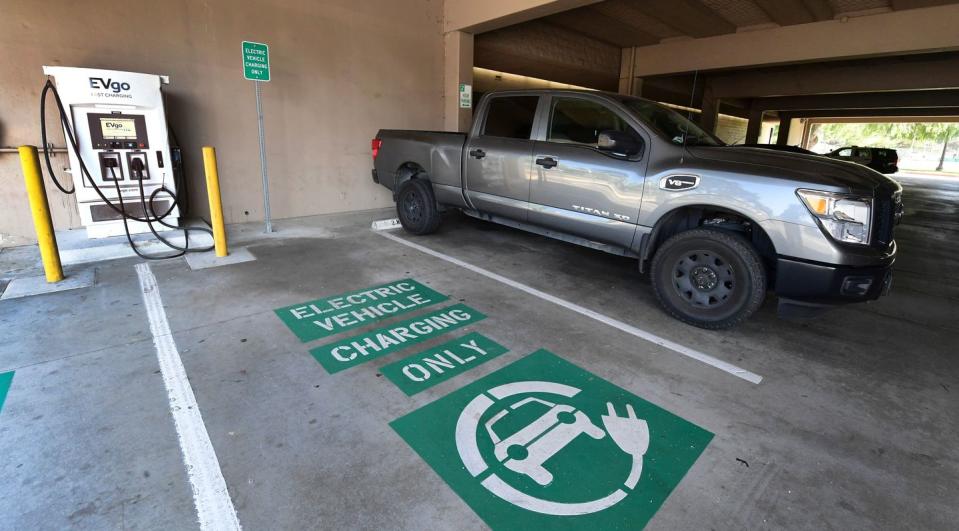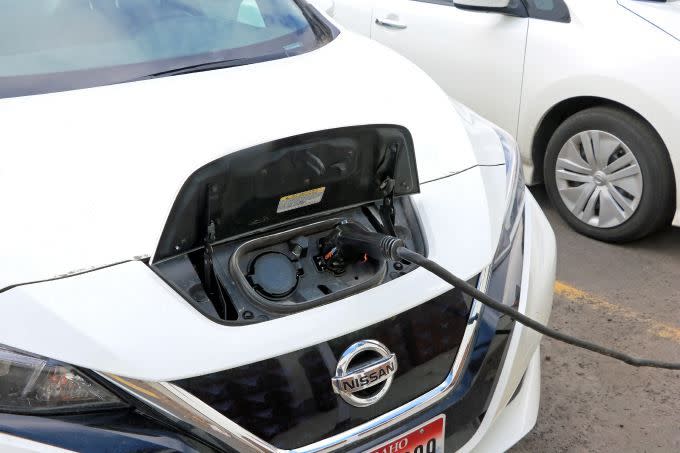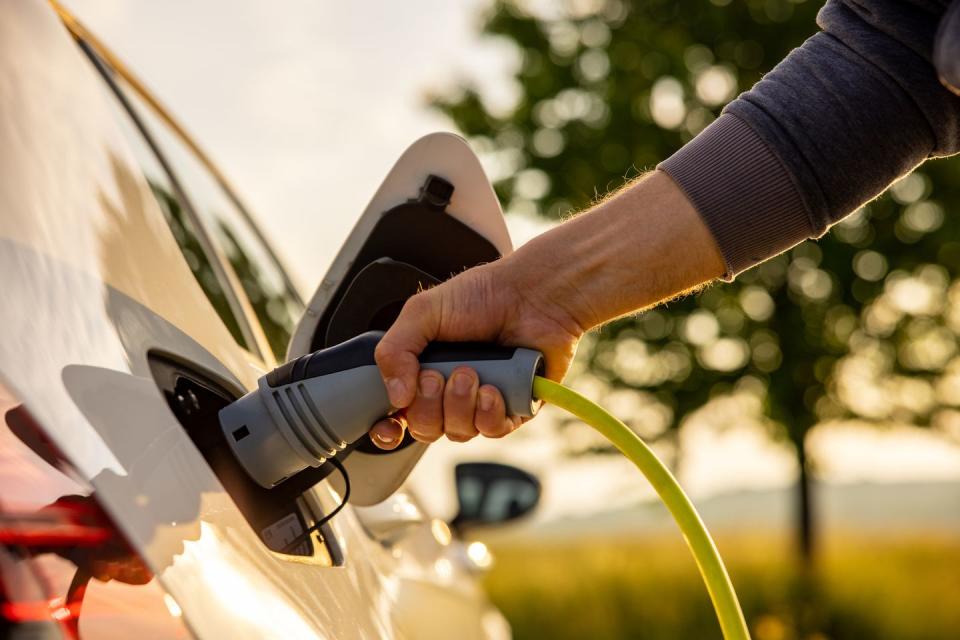All the Costs Involved in Owning an Electric Car

There was a time, not all that long ago, when electric vehicles seemed like they were from a distant and alien future that might never arrive. Now, just a few years later, we are living in that future, and EVs are becoming more common and more affordable every day.
That doesn’t mean an EV is accessible to everyone, as the pricing remains higher, on average, than with gasoline-powered counterparts.
So, while it’s true that EVs are becoming more affordable, they are still more expensive than their gasoline-powered counterparts. It’s possible to find electric cars that are more affordable than the average gasoline car, as was reported in by Koch vs. Clean. Still, the cost of a new EV can be a daunting prospect for new car buyers, even in light of tax credits and incentives.

So, knowing that the cost of electric cars can be more higher than the cost of gas powered cars, what about charging? We know that maintenance can be cheaper over the long haul, but that doesn’t account for charging the batteries every day. Let’s take a closer look.
How Much Does an Electric Car Cost?
The cost of electric cars is coming down every day, but in most cases, they still cost more than their internal combustion engine counterparts.
CURRENTLY AVAILABLE
On the low end, there are EVs starting under $30,000 that can from 149 miles of range upwards of 250 miles. At the upper end of the scale, you’ll find high-performance models coming it at $80,000—and climbing all the way up to a stratospheric $185,000.

Why the tremendous variance in pricing for EVs? Well, it has nothing to do with range, because some of the top-end models fall short of the range numbers advertised by more affordable cars. In many cases, the price is tied to brand prestige, but there's also performance to account for—like launching to 60 mph from a standstill in just 2.4 seconds.
FUTURE MODELS
In the near future, more models will cost closer to the average price of a conventional gas car, but the increased numbers of available models will likely bring down the cost across the board just through sheer competition. There's also the costs of developing a new EV, which automakers are keen to recoup through sales, but over time, the price can be lowered as more units are sold.
What Factors Impact the Cost of Electric Cars?
Local utility companies can have a big impact on your EV charging bill. Several regional and local utilities have implemented incentives and reduced rates for EV owners, which can reduce the recharging cost and make it much easier and more affordable to own an electric vehicle. Some offer discounted—and sometimes even free—installation of home charging equipment.

LOCATION
Your recharge cost also depends largely on where you live. The cost per kilowatt hour varies from place to place and peak charges vary in places that experience extreme demand for electricity. Your preferred charging rate and where you charge may also play a role.
RATE OF CHARGE
Not every charging station offers Level 3 or fast charging, as the costs to install a unit at charging stations can climb into the tens of thousands of dollars. Your electric vehicle manufacturer may have also worked out a deal with charging stations across the country to allow its cars free or reduced-cost access to charging.

DRIVING STYLE
Finally, how you drive your car has a large impact on the price you'll pay to own and drive an electric vehicle. If you spend most of your time on highway driving, you may find that your range and charging costs increase, as EVs tend to be less efficient at highway speeds.
Overview of Electric Car Charging Costs
Beyond the purchase price of a new EV, there are operating costs. Just like driving a gas car means stopping to fill up with fuel, driving an EV means charging the batteries.

If you own an EV and own your home, you might consider installing a home charging station. This can cost as little as a few hundred dollars, but can also cost quite a bit more than that for the most elaborate and robust systems with accompanying EV charging equipment. The cost to charge an electric car at home is likely less than you think.
How Much Does it Cost to Charge an Electric Car?
COST OF ELECTRICITY
The Alternative Fuels Data Center uses an example of charging an electric vehicle with a 66 kilowatt hour (kWh) battery from empty. It assumes that electricity costs $0.13 per kilowatt-hour, so the cost to charge a vehicle with a 200-mile range would be around $9.
Electricity rates vary from place to place and can be quite a bit different than this example, depending on the location, but it's a good indicator that charging electric vehicles is cheaper than filling a gas tank.

ELECTRICITY COST VS. GAS
As of the time of this article, the national average for regular gas is $3.078 per gallon. If we use a 2018 Honda Civic as our example, its 12.4-gallon tank would cost about $38.17 to fill. Of course, the Honda can achieve up to 42 miles per gallon, so in ideal conditions its full tank of fuel would help it travel a considerable distance further than an EV.
Even doubling the cost of electricity would still mean the price of charging an EV is less than a fuel fill up. Like the recharge costs that come along with owning an EV, gasoline costs fluctuate from time to time.
ALTERNATIVE SOURCES

The dollar amount of gas costs will likely remain much higher than electricity over time. Everyone from the U.S. Department of Energy to your local utility company is working on alternative energy sources that will lower recharging costs and hopefully slow the pace of climate change over time.
Federal Tax Credits May Apply
The United States government offers tax credits of up to $7,500 to buyers of eligible electric and plug-in hybrid vehicles, a program that was recently expanded as part of the Inflation Reduction Act.
It’s important to remember that these are not rebates; you will not receive a check in the mail at the end of the year. The $7,500 credit applies to your annual tax burden, so if you owe less than $7,500, you will not receive the entire credit amount.
State Tax Credits Can Help Even More

In addition to federal tax incentives, many states offer a similar credit. Maine, for example, offers an instant rebate of up to $2,000 for new EVs. The money can truly make a difference in the purchase price of an EV, as the Efficiency Maine website points out. The amount and eligibility requirements can vary from state to state, so it’s important to check with your state to be sure of what you’re able to claim.
So, How Much Does It Cost to Own an Electric Vehicle Over Time?
MAINTENANCE
Beyond the question of charging, EV maintenance and ownership costs are big issues for those unfamiliar with the space. Unlike a gas-powered car, EVs don't have hundreds of complex mechanical moving parts, which means common repair items like water pumps and air filters don't need to be replaced. EVs also tend to chew through brakes slower than their gas powered counterparts because of regenerative braking, which uses the electric motor as a generator and slows the car.
On the flip side, some electric vehicle owners report burning through tires at an increased rate, due to the instant torque and exhilarating acceleration that an electric car offers.

DEPRECIATION
Depreciation and longevity should also be on the minds of electric car owners. Electric vehicles tend to cost more than their gas-powered counterparts, but over time they have shown a tendency to lose value (depreciate) more quickly. Electric cars such as the Nissan Leaf, for example, lose as much as 70 percent of their value over a five-year period.
There are some exceptions, as the Tesla Model 3 has shown, but that can add unnecessary financial pain to the experience of owning an electric car.
Of course, keeping any vehicle for an extended period of time is the best way around the cost of depreciation.
How long do EVs last?
The battery in an electric car starts to break down after a while, just like any other electrical component. Over time, the batteries begin to lose capacity and don't hold as much of a charge, which can greatly reduce range. Cars are only useful if they can travel their advertised range, so an electric car with a bad battery is nearly worthless.

Automakers issue warranties for the batteries and electrical components in EVs, just like they would for any other vehicle. In many cases, these warranties extend to 10 years or 100,000 miles or more, which means that the battery can be repaired or replaced if it breaks within that time period.
What are some pros of owning an electric vehicle?
REDUCED MAINTENANCE
It's true that gas vehicles are usually less expensive and easier to refuel, but there are several benefits to owning an EV that have nothing to do with costs. One of the biggest pros is the reduced need for regular maintenance. There are no oil changes, no mechanical components to break underhood, no exhaust system, and the life of other components such as brakes can be extended. Many people report that driving an electric car is more relaxing than a gas vehicle, because of the lack of engine noise.
MORE PERFORMANCE

Many electric models offer significant performance benefits over gas vehicles as well. This applies not only to intended high-performance cars from Porsche, Tesla, and others, but even to everyday commuter vehicles. The immediate torque and acceleration can make electric cars exhilarating to drive, and make them quicker than most people expect, depending on driving habits.
All of that, and we haven't even mentioned the complete reduction of greenhouse gas emissions in everyday driving.
What are some cons of electric cars?
ACCESS TO CHARGING
There are a few downsides that might not be immediately apparent when you are standing on the dealer's lot trying to make a car purchase. Depending on your location, you may or may not have ready access to charging stations. This is especially true for people who live in apartment buildings or those who rent, as it can be impossible to install a home charging system.
CHARGING TIME
You may also find that electric cars take too long to charge, even if there is a charging station nearby. Unlike filling up a gas tank, which can take a few minutes, most electric vehicles take much longer to recover a sizable portion of their range. This can make road trips impractical for many, as the requirement to stop and charge for half an hour or more can turn a simple trip into a long, painful one.

 Yahoo Autos
Yahoo Autos 